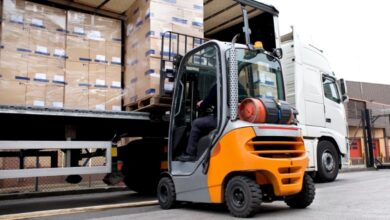
Key Factors To Consider When Planning a Business Warehouse
A warehouse can help any business be more efficient and organized, but only if it has proper planning behind it. Careful planning optimizes space and enhances productivity, safety, and adaptability. If you’re a business owner planning a warehouse addition or expansion, here are some key factors to consider.
Inventory and Space Needs
Start planning your warehouse by understanding your inventory and space requirements. Begin by analyzing your current inventory levels and trends to predict future needs accurately. This step will help you allocate space more effectively, prevent overcrowding, and better utilize all your resources.
Moreover, consider the types of products you’ll store and their storage requirements. Implementing effective space utilization techniques, such as vertical storage systems and narrow aisle configurations, can enhance operational efficiency and maximize available space. And don’t stop there—find ways to maximize your storage systems such as pallet racking to create even more space.
Integration of Technology
You can achieve greater accuracy, speed, and cost-effectiveness in your warehouse operations by leveraging technology. Automation plays a vital role in streamlining processes and reducing manual errors.
Invest in software solutions for inventory tracking and management, which provide real-time data and insights for better decision-making. Automated systems like robotic pickers and conveyors can optimize workflows and boost productivity.
Safety and Compliance
Safety is paramount in warehouse management, and compliance with regulations is nonnegotiable. Implementing robust safety measures helps protect employees and reduces accidents. Familiarize yourself with relevant safety regulations and best practices, such as proper signage, equipment maintenance, and regular safety training for staff.
A well-maintained and organized warehouse also creates a safer environment. Prioritizing safety protects your workforce and fosters a culture of responsibility and trust.
Sustainability in Operations
Sustainability has become a key consideration for modern warehouses. Use energy-efficient lighting, recycling programs, and eco-friendly packaging materials.
Sustainable practices can lead to cost savings and improved commitment to corporate social responsibility. Also, sustainable businesses attract environmentally conscious customers and partners, driving long-term success.
Flexibility and Scalability
Flexibility and scalability are crucial for adapting to changing business demands. Therefore, design your warehouse layout and operations to accommodate growth and fluctuations in demand. Consider adjustable shelving systems, modular designs, and flexible workstations that you can adapt to new environments and workflows.
By planning for scalability, you can avoid costly overhauls and disruptions and efficiently respond to market changes.
By considering these key factors when planning a business warehouse, you can create an environment that supports efficient operations and long-term growth.






